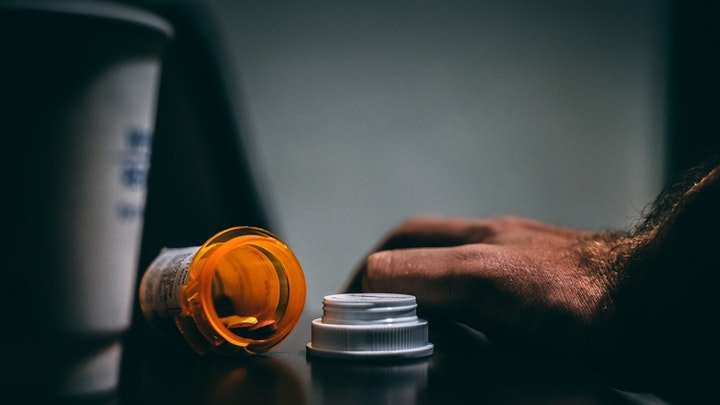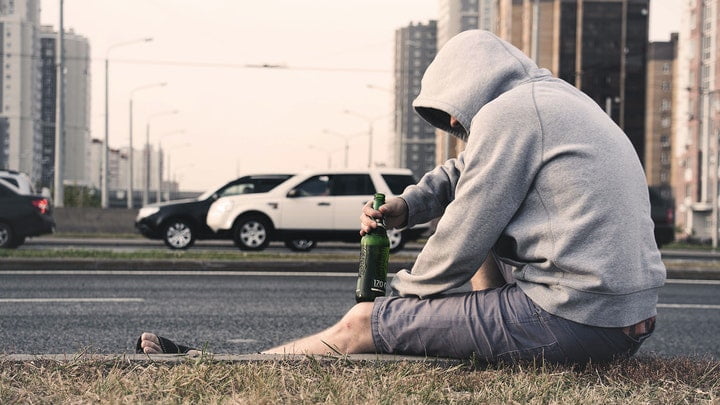Cocaine use has increased throughout the world due to it being more available and cheaper. This, along with alcohol being legal, means that the occurrence of people using both has accelerated.
Polydrug abuse (where more than one substance is taken) comes with more risks than one substance alone. This is due to the side effects of each alone and then what happens in the body when two are combined.
The effects of alcohol

Alcohol is a depressant. This means that on the whole, it slows a person and bodily functions down. Many people drink alcohol socially as a way to enhance the moment. This is due to the increase in confidence it often provides.
However, with an increase in units drunk and with more regular use, unpleasant effects begin to unravel.
Side effects can include the following:
- Increased confidence.
- Mood swings.
- Slower reaction times.
- Blurred vision.
- Slurred speech.
- Dizziness and loss of balance.
- Aggression.
- Sickness and diarrhoea.
- Blackouts.
- Poisoning.
Of course, these symptoms are more common in the short term. With ongoing use, long-term effects also occur. Many develop addictions and severe long-term effects linked to this such as alcoholism and damage to vital organs. At its worst, severe alcohol use takes lives.
The effects of cocaine

Cocaine is a stimulant. Where alcohol slows the body down, cocaine speeds it up. People often take it to get “a buzz” and for increased energy. The first time a person uses cocaine, they’ll often feel a huge rush of euphoria.
This initial state is never achieved again. It’s commonly referred to in the same way as a person’s first heroin high, when people say, “chasing the dragon”.
What many people don’t realise is how addictive cocaine is. With its increasing availability and it becoming more socially acceptable in some social circles, people entering treatment for cocaine addiction in the UK is on the increase.(1)
Side effects include:
- Increased energy.
- Face feeling numb.
- Twitching.
- Nose bleeds.
- Dilated pupils.
- “Gurning” (movements in the lower jaw).
- Increased heart rate.
- Increased temperature.
- Increased blood pressure.
- Anxiety.
- Paranoia.
- Aggressiveness.
- Insomnia.
- Paranoia.
Again, with the development of an addiction and increased, regular use, long-term effects occur. These often include weight loss, damage to nose cartilage, damage to vital organs, and at its worst, cocaine use can cause death.
The effects of mixing alcohol and cocaine

When two toxic substances are combined in the body the risks are much more dangerous. When both cocaine and alcohol are used together the following effects are common:
Short-term
- Increased energy.
- Feeling a high or “buzz”.
- Aggression.
- Fights.
- Erratic mood swings.
- “Comedowns” (due to fluctuations in “happy” chemicals and hormonal balances).
- Reduce appetite.
- Increased impulsivity.
Long-term
- Deterioration in mental health.
- Damage to nose cartilage.
- Increased suicidal ideation and increased risk of suicide.
- Fluctuations in weight.
- Respiratory problems.
- Damage to liver, kidneys, pancreas, stomach, brain etc.
- Increased risk of cancer, blood clots, heart attacks, strokes.
When alcohol and cocaine mix in the body, they create a new chemical in the body called cocaethylene.
What is cocaethylene?

Any substance we put in our bodies needs to be processed and every substance will have waste products. Waste is then usually removed from the body in urine and excrement. In terms of alcohol and cocaine there are many waste toxins that are created when the liver tries to metabolise them.
Cocaethylene is one of these chemicals and it’s highly toxic. It’s reported to be much more damaging than cocaine effects on its own.
Due to the way alcohol and cocaine react to each other, when a person drinks more alcohol, the liver is unable to keep up with sending the cocaethylene out with urine. This results in it passing into the bloodstream where it then reaches the vital organs.
This is a toxic substance that builds up in the liver and other organs and causes long-term damage to all the vital organs.
Cocaethylene:
- Stays in the system much longer than cocaine or alcohol alone.
- Creates long-term damage to vital organs.
- Increases withdrawal symptoms and cravings.
- Causes heart pain and heart attacks.
- Causes aneurysms and strokes.
- Increases the risk of sudden death
It’s reported that cocaethylene can remain in the system for days, even up to weeks.
Why are cocaine and alcohol known as the “deadly combination”?

Research shows that mixing alcohol and cocaine brings with it an increased risk of suicide.(2)
In the UK there have been many people who use cocaine and alcohol who have also taken their own lives. This has been seen in the tragedies of reality TV stars as well as in our local communities.
The combination of the two are said to be deadly because of how seriously they can affect mental health. Anxiety, depression, and suicidal thoughts are common effects. It doesn’t take much for things to feel unbearable when a person has an addiction to these two substances,
Why do people take cocaine and alcohol?

As with any substance, people usually take them for effects they feel are desirable. It could be due to wanting to feel more confident, calm, or just to cope.
Many people use the two to self-medicate, while others might do the two socially. Some take alcohol to “balance out” the effects of cocaine and some people take cocaine so they can drink more alcohol as it “straightens them out”.
For many, experimental and recreational use morphs into problematic use.
Whatever people’s reasons, it’s important that others are compassionate to those who use alcohol and drugs. This creates a safer space to talk about problems linked to the substances as well as life in general.
Do you have a problem with cocaine and alcohol?

You might be concerned that you have a problem with cocaine and alcohol. Or perhaps someone close to you has told you that they think you have a problem. There are things you can look out for that will confirm whether problematic or addictive habits have developed.
Symptoms of cocaine and alcohol problem:
- Losing interest in usual hobbies and interests.
- Lack of motivation.
- Mood swings.
- Sleep problems.
- Appetite fluctuations.
- Being secretive or lying about use.
- Wanting cocaine and alcohol more often.
- Thinking/talking about them a lot.
- Worrying about how to get your next lot.
- “Clucking” for more when you set yourself a limit.
- Money problems and/or debt.
- Problems in relationships related to using.
When a person develops an addiction, they’ll find it increasingly difficult to go a day without using the substances. However, problematic use can still exist even if a person doesn’t use cocaine and alcohol every day.
Some people do it on a “weekend only” basis.
A person can still have a problem with alcohol and cocaine if they keep their use to weekends. Many weekend users still have issues linked to physical and mental health as well as relationship and financial problems.
How to access treatment for substance misuse

There is a huge range of options for drug and alcohol treatment throughout the UK.
Some prefer an intense approach and a stay at a rehab clinic, whereas others prefer a casual approach and outpatient services.
To find out what’s available in your area to suit your personal needs, contact OK Rehab to find out more.
Final thoughts
Cocaine and alcohol use is increasingly causing problems throughout communities in the UK. Many people combine the two without realising just how dangerous the effects are to the body.
The long term effects of this type of polyuse substance misuse can critically damage the vital organs. This is partly due to the buildup of cocaethylene which is toxic.
This can cause aneurysms, heart problems, and strokes.
There are a wide variety of options to help quit both alcohol and cocaine. You can find out your local options by contacting OK Rehab.
References
- https://www.gov.uk/government/statistics/substance-misuse-treatment-for-adults-statistics-2018-to-2019/adult-substance-misuse-treatment-statistics-2018-to-2019-report
- https://www.sciencedaily.com/releases/2016/04/160408101936.htm





